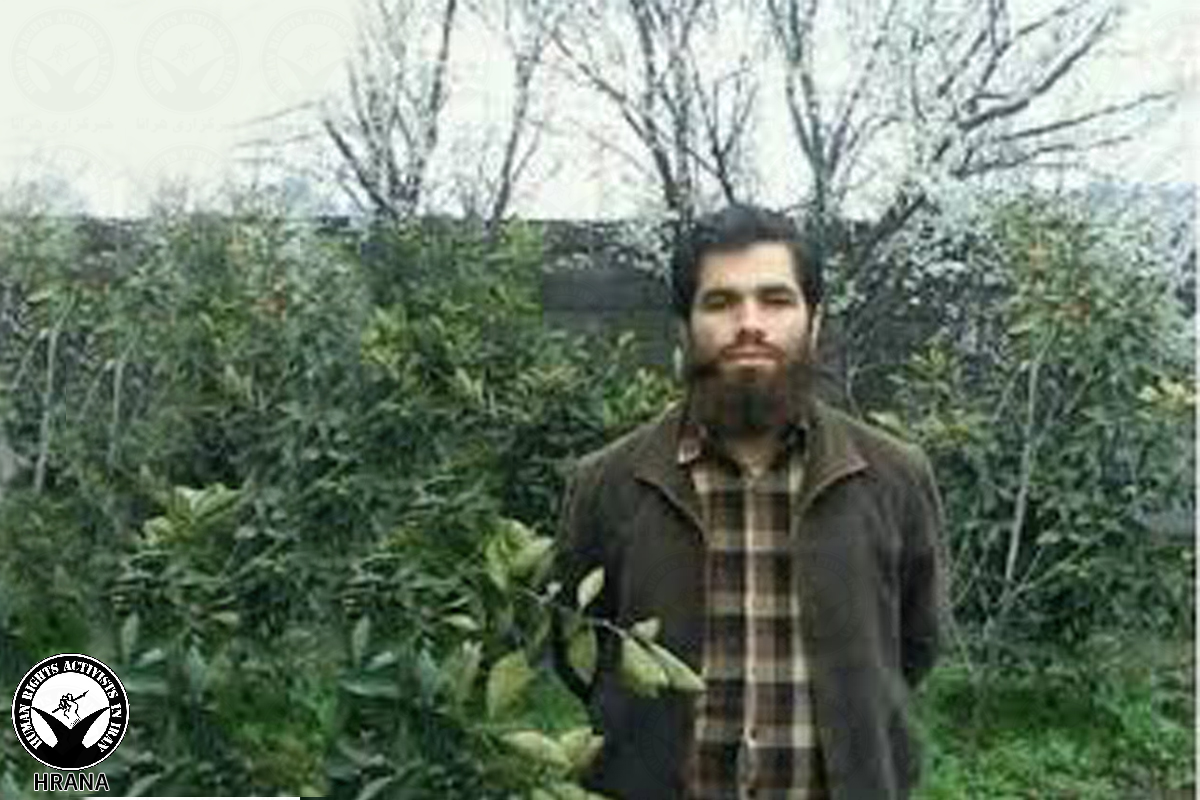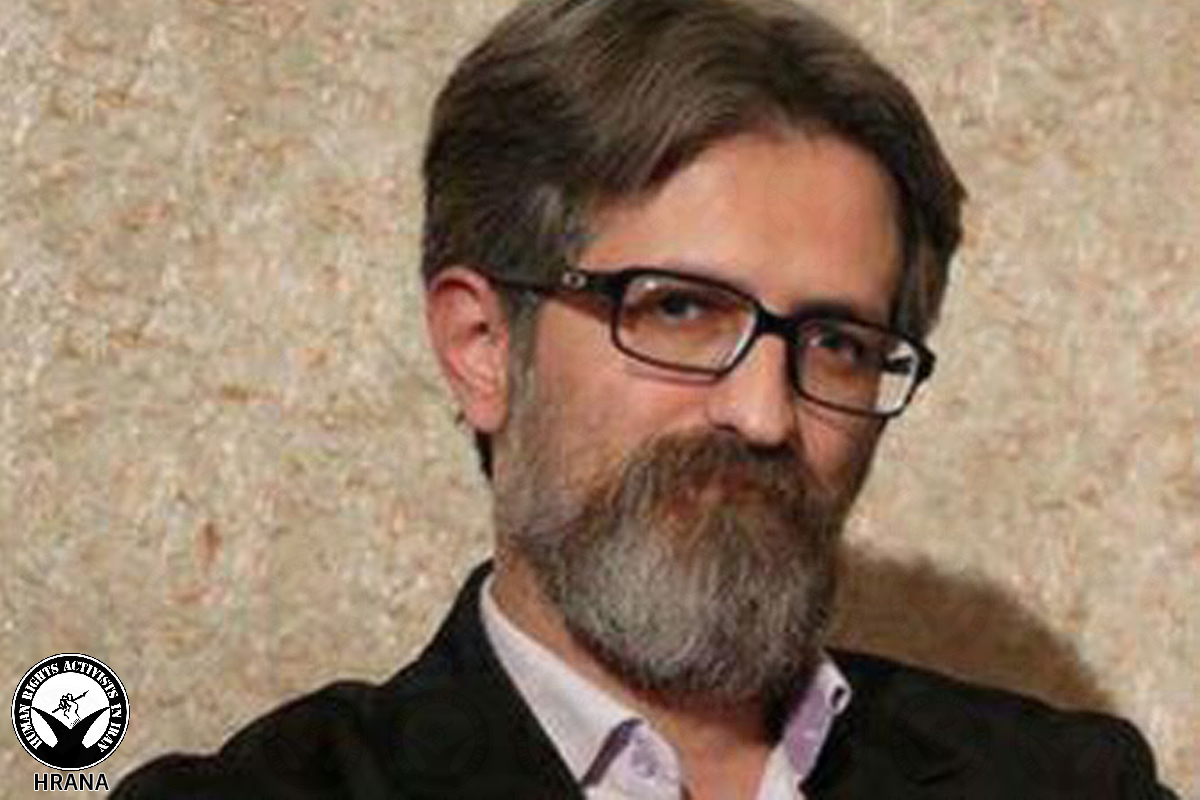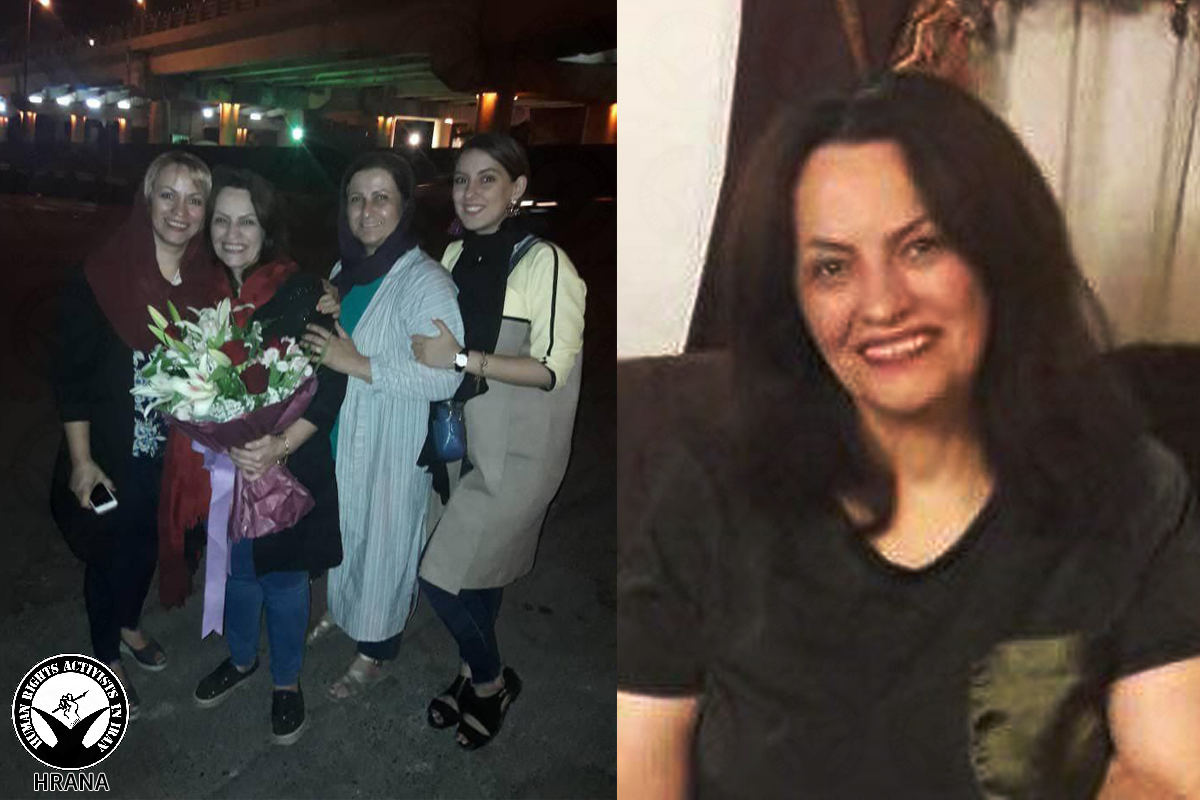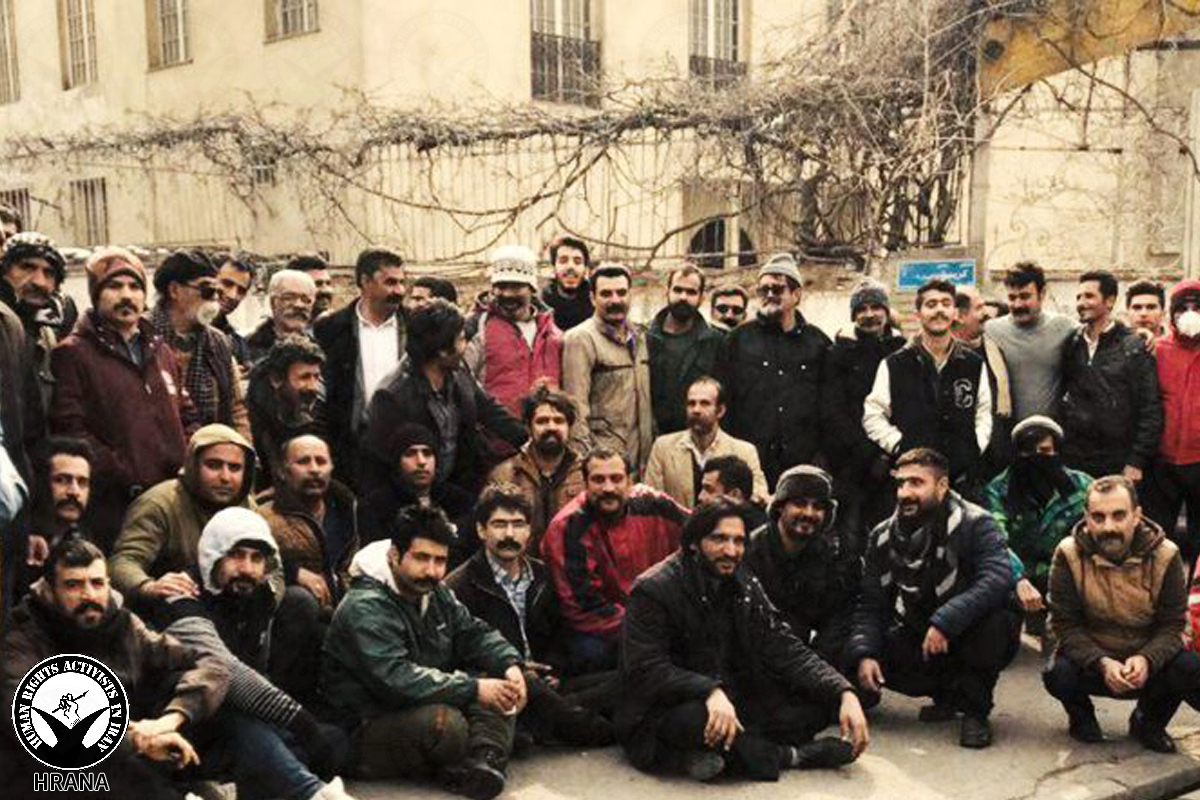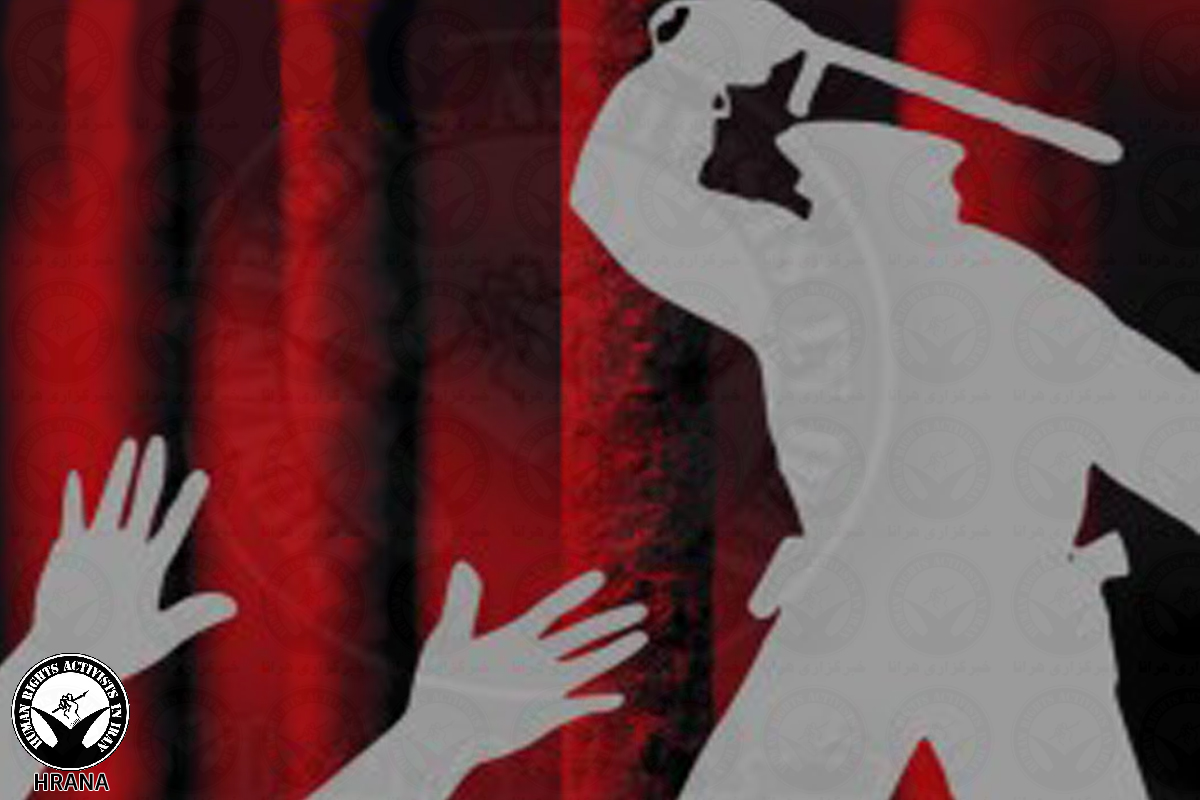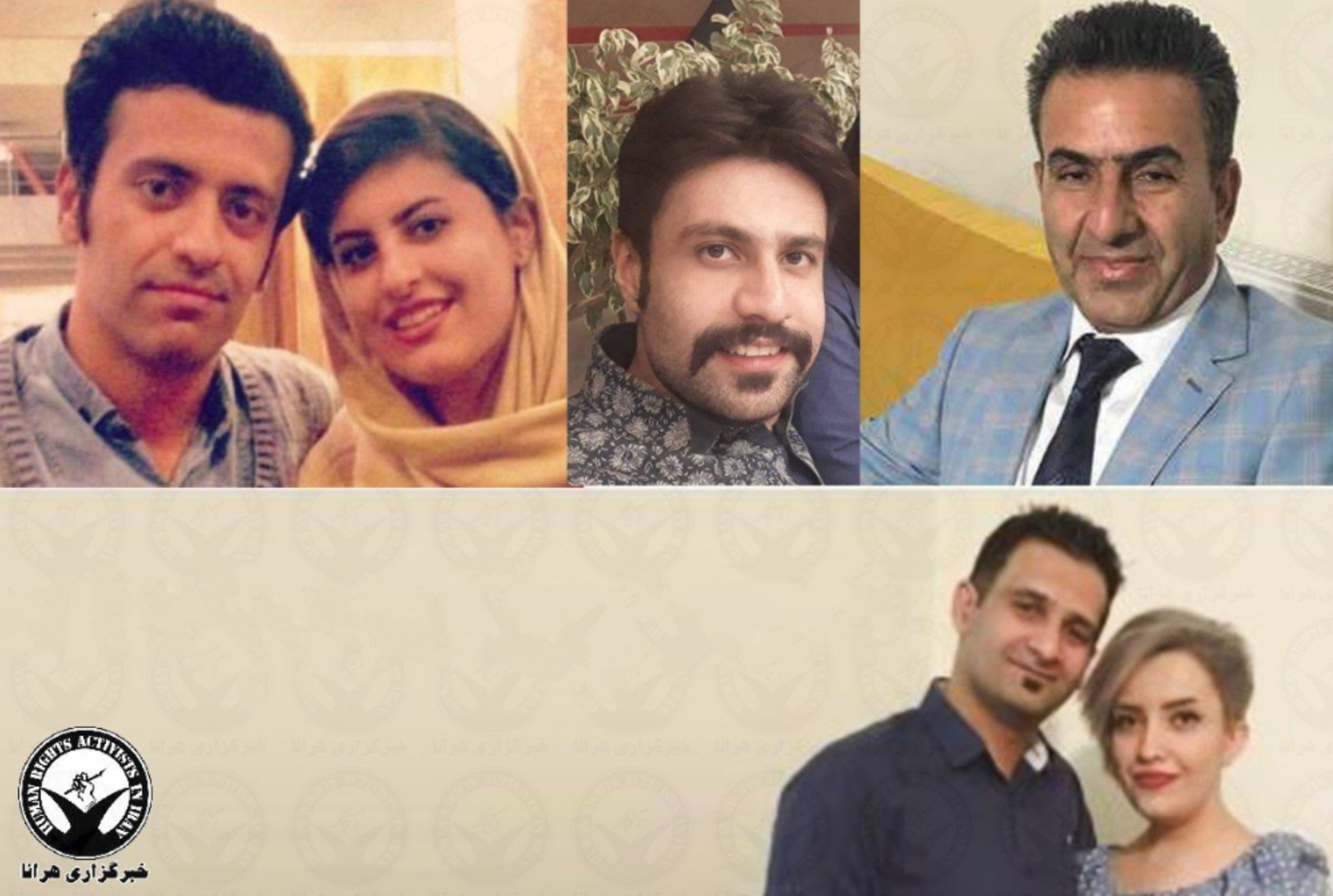Update: As of Tuesday, September 4th, five other Dervish prisoners have joined the hunger strike. Their names are Babak Taghian, Ehsan Malekmohammadi, Salemi Salemi, Reza Bavi, and Akbar Dadashi.
Human Rights Activists News Agency (HRANA) – Twelve of the Dervish prisoners at Great Tehran Penitentiary who were violently disbanded and sent to solitary confinement on August 29th after staging a sit-in have started a hunger strike, while at least 20 of those attacked are reportedly in poor health.
Prison guards used batons, electrical shock, and tear gas on the prisoners to break up their peaceful protest, which had been in effect in Ward 3 since June 13th. The Twitter account of Majzooban Noor — a news agency publishing a feed on Dervishes, a religious minority — described the prison officials’ plan of attack, which involved filtering non-Dervish detainees from the quarantine area before charging those involved in the protest.
According to Majzooban Noor, prison officials then welded shut the gate of the prison yard to surround a number of Dervishes, using tear gas on those who attempted to come to their aid. The prisoners involved in the sit-in, along with 18 Dervishes from Ward 4, were subsequently taken to solitary confinement.
The August 29th raid occurred during a visit to the prison by Mostafa Mohebbi, the Director General of the organization Prisons of Tehran, who had come to inspect the Great Tehran Penitentiary following reports of deplorable conditions there.
Mohebbi reportedly watched as the heads of the prison — identified only as Director Farzadi and his deputy, “Farrokhnejad” — personally inflicted skull and arm fractures, among other injuries, on the confined Dervish prisoners.
Alireza Roshan, the director of Majzooban Noor, told HRANA that while many Dervishes were transferred to solitary confinement, others were individually dispersed among other Wards of the prison. He identified nine solitary confinement prisoners who started hunger strike upon their transfer: Ali Bolboli, Salehodin Moradi, Mohammad Reza Darvishi, Abbas Dehghan, Ali Mohammad Shahi, Mojtaba Biranvand, Ali Karimi, Jafar Ahmadi, and Ibrahim Allahbakhshi.
“Their demands[…]are the reunification of the [Dervish] prisoners to one ward, the release of the female Dervishes [held in Gharchak Prison], and the lifting of the house arrest of Noor Ali Tabandeh, the group’s leader, who has been under house arrest since February 2018,” Roshan revealed.
Three other Dervishes have since followed suit, according to Majzooban Noor, making for a total of twelve Dervishes currently starving themselves in protest. These three were identified as Heydar Teymouri, Majid Yarahmadi, and Saeed Soltanpour.
Roshan said prison regulations stipulate that certain prisoners be kept apart depending on their offenses and beliefs, and that prison officials are responsible for ensuring the collective safety of their detainees.
“Nevertheless,” said Roshan, “Great Tehran Penitentiary officials hold the Dervishes, [who are political prisoners], in a general ward alongside prisoners who have allegedly committed common crimes.”
The following is a bulletin from Majzooban Noor on Dervish prisoners whose health is now at risk:
- Kasra Nouri 2. Reza Entesari 3. Pouria Nouri 4. Mehdi Eskandari 5. Saeed Soltanpour 6. Mehrdad Rezaei 7. Alborz Eskandari 8. Ali Abidavi 9. Hasan Shahreza 10. Sekhavat Salimi 11. Amir Nouri 12. Jafar Ahmadi 13. Babak Moradi 14. Majid Moradi 15. Mohammad Reza Darvishi 16. Heydar Teymouri 17. Ali Mohammad Shahi 18. Amin Soleimani 19. Sajjad Baradaran 20. Akbar Dadashi
Prison guards reportedly pulled out some of the Dervishes’ hair, including their facial hair, during the August 29th raid.
Human rights activists and families of the victims have recently raised concerns over a lack of transparency from prison authorities on the current condition of the Dervishes.
The families of the affected Dervishes have written a letter to judicial authorities to demand immediate face-to-face visits with their imprisoned loved ones. The families are reportedly suspicious that authorities have enforced solitary confinement and delays on family visits in order that wounds and traces of violence have ample time to fade from the Dervishes’ bodies.
Six of the dervishes who were beaten – Salehodin Moradi, Ali Bolboli, Mohammad Reza Darvishi, Sekhavat Salimi, Ali Karimi, and Ibrahim Allahbakhshi – have been transferred to Ward 1 of the Great Tehran Penitentiary, quarters for those convicted of common crimes.
Others — including Reza Entesari, Sina Entezari, Kasra Nouri, Mehdi Eskandari, Reza Bavi, Amir Nouri, and Mohammad Sharifi Moghaddam — are being held in solitary confinement.
*There are various divisions among Dervish religious groups in Iran. The use of Dervish in this article refers to Nematollahi Gonabadis, who in recent years have declared themselves followers of Twelver Shia Islam, Iran’s official state religion.
HRANA previously reported on how the sit-in was violently broken up



